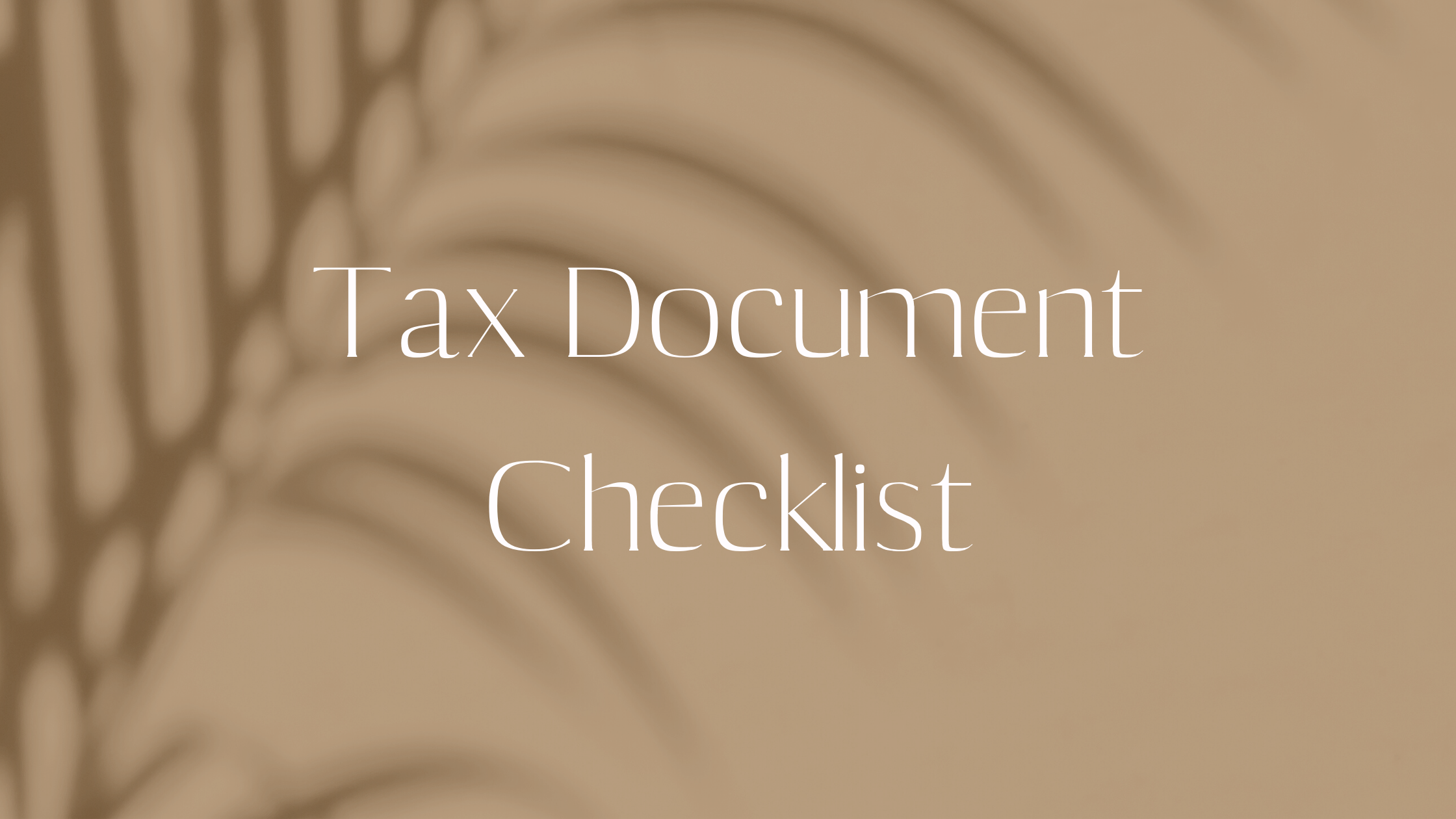Tax Deduction Checklist
As you collect all the appropriate documents for your tax return, it is easy to forget an essential document or piece of information that is required to complete your return. For that reason, we created the tax deduction checklist to help ensure you can confidently send all the necessary files to your accountant.
Administrative Items
Below are some basic items your tax accountant will need to complete your return. If you have filed with your accountant in years past, they likely already have this information on file.
Your Full Name
DOB
Social Security Number or Tax ID Number
Your Spouse's Full Name (if married, filing jointly)
DOB
Social Security Number or Tax ID Number
Dependents
Names
DOB
Social Security Number or Tax ID Number
Identity Protection PIN (if you have received one from the IRS in the past)
Bank Account Number & Routing Number (if enrolling in direct deposit)
Tax ID Number of any childcare provider (if applicable)
Sources of Income
You will likely not have every item on this list but it is important to confirm each item for you and your dependents.
W-2
1099-G, for unemployment income
Self Employment Records
Record of all income received
Record of all expenses
Records of estimated tax payments made
Pension/IRA/Annuity Income (1099-R)
Social Security Income (SSA-1099)
Interest Income (1099-INT)
Dividend Income (1099-DIV)
Health Savings Account Contributions and Reimbursements (1099-SA)
Investment related expenses
Gambling income or losses (W-2G)
Jury duty records
Lottery or other prize income records
Alimony paid or received
Ex-Spouse’s name
Ex-Spouse’s Social security number or Tax ID Number
State and Local Taxes
Amount of state and local taxes paid
Not to include any wage withholding
Records of vehicle sales tax paid / personal property tax on vehicles
Medical
Transportation expenses
Medical needs like contact lenses, eyeglasses, or hearing aids
Equipment purchased to aid a disability
Nursing home medical expenses
Substance abuse program expenses
Prescribed weight loss program fees
Prescription drugs
Business
These expenses are all not necessarily deductible for every individual and may require further information from you. We recommend reaching out to your tax accountant to learn more about how tracking some of these expenses can help decrease your tax liability.
Home office expenses
Required uniforms
Training expenses
Employment agency fees
Business cell phone expenses
Certification fees
Business related meal and travel expenses
Charitable Contributions
Unreimbursed expenses related to volunteer work
Tax deductible mileage to perform charitable activities
Estimated value of donated goods
Cash donations to charitable organizations
Educational
Lifetime learning credit
Student loan interest
American opportunity tax credit
You May Also Like:
Finances
Casualty and theft losses
Unreimbursed job-related expenses
Professional dues such as union fees
IRA contributions
Moving Expenses
Estimated tax payments
Overpayment from previous year’s return
Child care expenses (for each dependent)
Earned Income Tax Credit
Child Tax Credit
Adoption related expenses
First Time Home Buyer Tax Credit
These are just a few items you may want to consider when talking with your accountant about which deductions may apply to you. Many of these may not be applicable or may seem applicable until you learn a bit more.
For example, with the home office deduction, this does not apply to workers who were sent home to work because of the pandemic. This deduction is primarily for workers who own a business and work out of their homes, primarily.
If you would like to learn more about how to lower your tax liability, consider sending us a message so we can learn a bit more about you.

